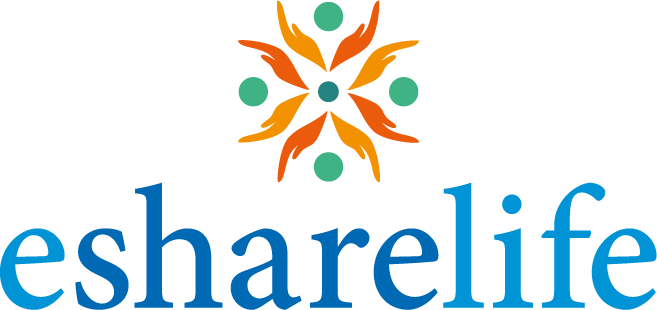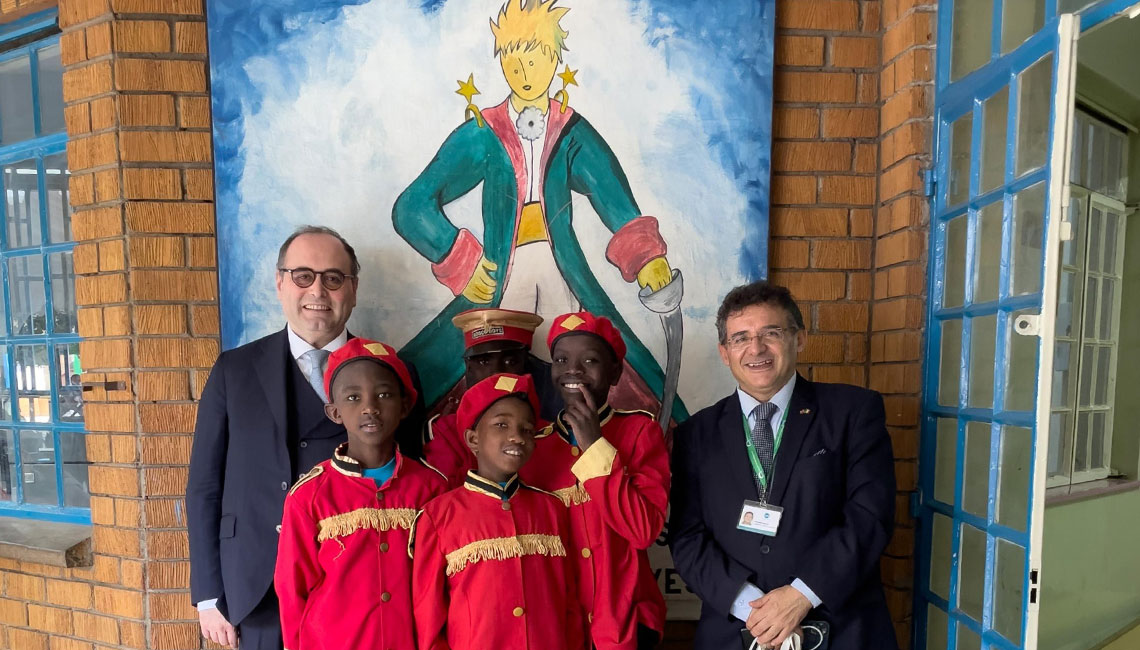Little Prince is a Nursery and Primary School situated in the heart of Kibera slum in Nairobi, Kenya. Dedicated to serving children whose parents face challenges in supporting their education, the school aims to offer an opportunity for these young ones to break free from the burdens they would otherwise frequently endure. These include caring for younger siblings, travelling long distances to fetch water, and resorting to begging for sustenance.
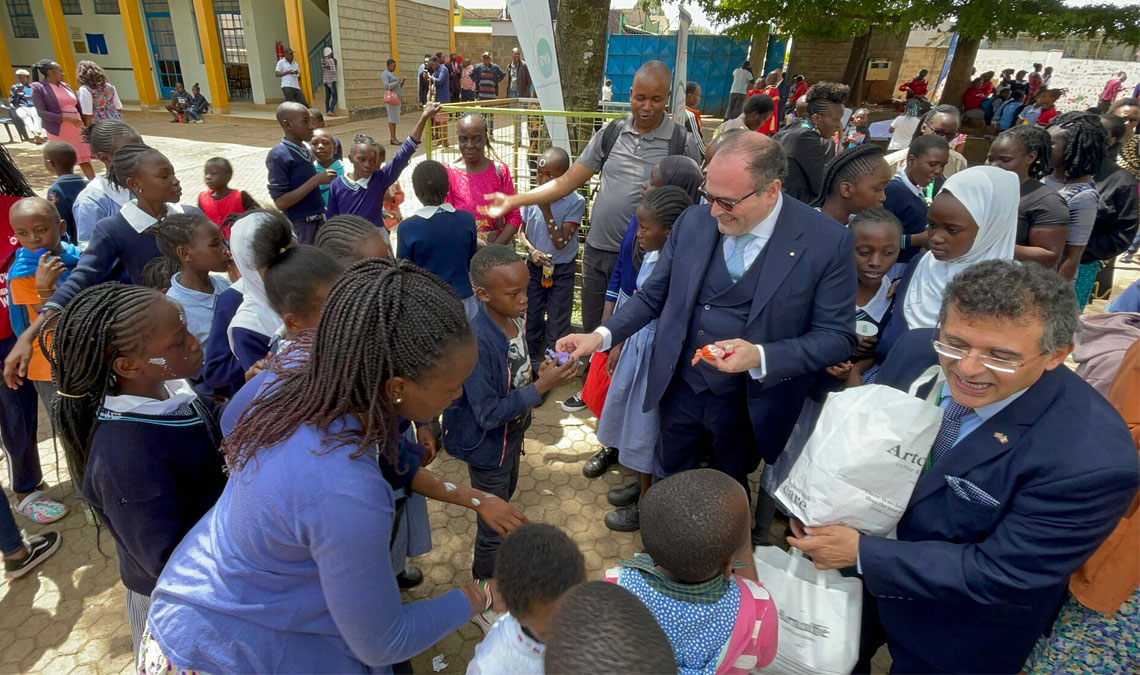
History and mission
Little Prince Nursery and Primary School started in 2000 as a remedial Centre with one teacher and seven children, hosted in a school in Gatwekera, in Kibera’s slum. By the end of the same year the population grew to 25 children. Later, AVSI Foundation decided to support the beginning of a complete formal school. The 25 children formed the first class.
The school fees are provided by European donors with the parents contributing a token, according to their ability. As the school grew, so did the need for more space to allow future development. In 2004, the school purchased the land where it is currently situated, within the Kibera slum. With the help of well-wishers, the school was constructed and on 23rd May 2005, Little Prince Nursery and Primary School was officially inaugurated by the Late Minister for Education Professor George Saitoti. Today, the school has eight classes, with more than 391 students; a library, staffroom, art laboratory, a theatre, a computer class, a dining hall, a kitchen and administrative offices. It also has a pre-school section which began in 2007, and includes a baby class, nursery, and pre-unit class. The pre-school was originally housed in an iron sheets structure until 2010, when a permanent block was constructed and inaugurated in March by the Apostolic Nuncio Alain P. Lebeaupin.
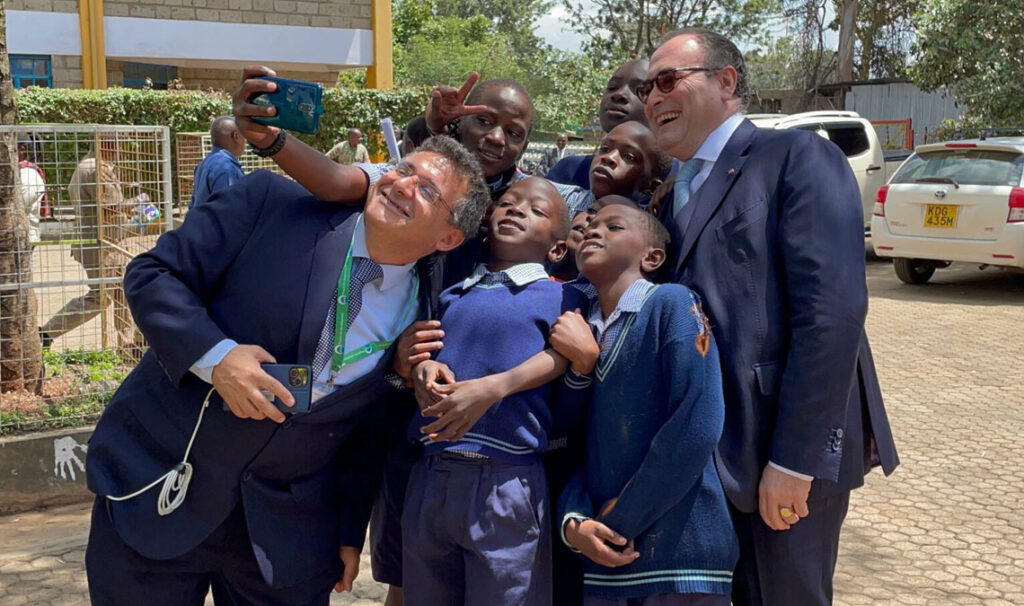
The key beneficiaries of the school (96%) are orphans and vulnerable children from Kibera. The children who join the school are proposed by local networks as the Sisters of Mother Teresa of Calcutta, who are in contact with the poorest people in the slums.
Other than education, the Little Prince offers to the pupils also a feeding programme. Given the economic hardships in the slum, many cannot afford to have the recommended three meals in a day, thus the school offers porridge and lunch to the children every school day.
In addition to the stipulated school curriculum, the school offers significant cultural activities including trips to museums, mountains and parks, organised for each class once a term to further understand the subjects studied in class.
Furthermore, the presentation of a dramatised play comes after reading and deepening story books, in which the content is always very attractive and involves the children. The play is then an occasion for the child to express himself/herself, to collaborate with others and to interact with the teachers in a different context from the classroom. This helps in the growth of the personality of the child who gains a curiosity, a capacity to critique and an awareness of himself that will be at play in all the other subjects.
The school also occasionally invites specialists in different fields who help the pupils deal with different issues they may have, arising from their social context. These may be regarding health, relationships, and spirituality, and are done with the aim of equipping the pupils to confront and overcome their challenges.
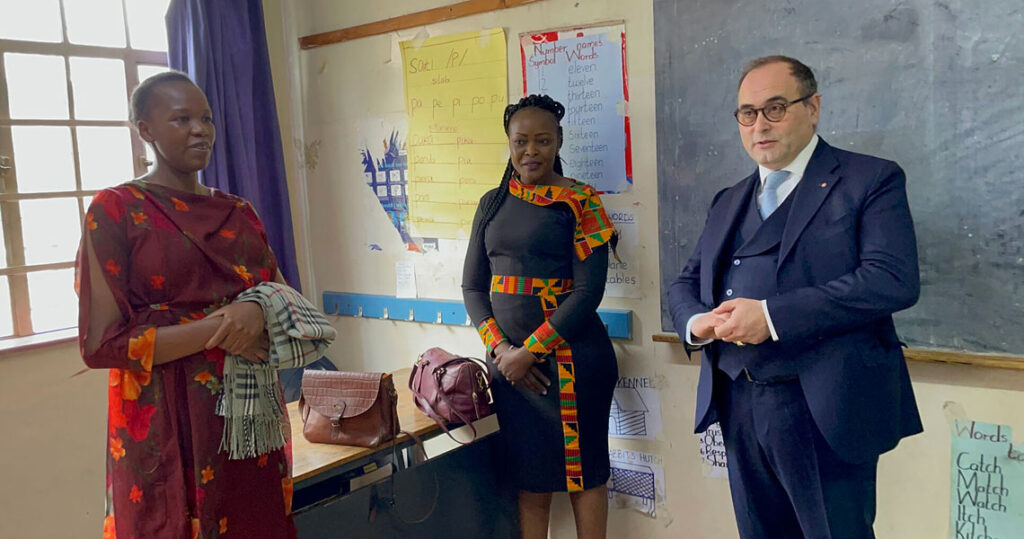
Impact
The money raised by Esharelife Foundation go towards providing psychosocial support, including periodic home visits, recreational activities including sporting activities with prizes, school meetings, part payment of school fees and contributions toward school uniforms, books and stationery, medical assistance including free medical consultations, medicines and specific medical treatments. Currently, Esharelife Foundation supports 29 children in the school.
